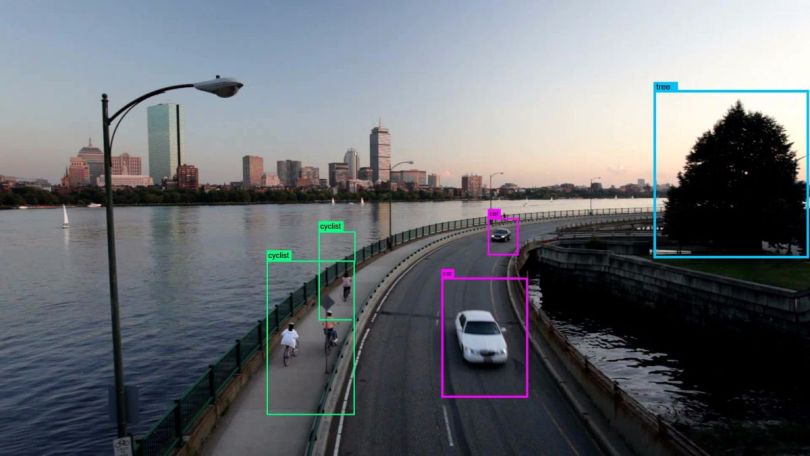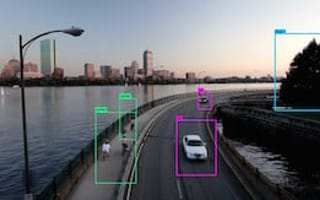
Dr. Max Versace was sitting at a coffee shop with two other Boston University graduate students when he predicted the future.
Versace (pictured below, right), who was studying cognitive and neural systems, pulled out his cell phone, pointed at it and said, “One day this will have a processor strong enough to do the computations necessary for artificial intelligence software.” 
His classmates Heather Ames and Anatoly Gorshechnikov laughed, but a decade later Ames said her friend and co-founder of their startup Neurala was right.
Graphics processing units (or GPUs) are so powerful today they can be used to emulate the processes of the brain. Neurala, co-founded by Versace, Ames and Gorshechnikov, developed that concept and holds the patent for GPU-based systems that run artificial neural networks, a key to modern approaches for AI.
Neurala got its start at the Boston University Neuromorphics Lab and was funded by NASA and the U.S. Air Force for research projects, including developing robot intelligence for use on Mars, where robots have to operate independently. Neurala’s core belief is that the brain is the perfect model for intelligence, with eyes and ears functioning as ideal models for sensors. Therefore, Neurala tries to mimic the way biology works for its software, cameras and microphones.
Today, Neurala builds the brains for everything from toys to robots, using AI to serve customers like NASA, the U.S. Air Force, Motorola Solutions, Parrot and Teal Drones, among others.
The startup’s technology allows autonomous machines to function without a human at the helm, so they can see their environment, make decisions and even navigate obstacles.
While many companies are focused on machine learning, what Neurala hopes will set it apart from competitors is its technology’s ability to work in self-contained environments with limited to no connectivity. The company has built the “Neurala Brain,” a deep learning neural network software that mimics how the human brain works to learn and provide real-time information from cameras and sensors.
The Neurala Brain can be used anywhere, scaling from embedded single-board computers to the cloud, and Neurala’s product suite arms companies with everything they need to make a drone, security camera, robot, toy, self-driving car, or other device learn and act.
Eventually, Ames said she hopes the company’s software becomes the defacto standard for deep learning neural networks across these industries.
“We believe we will become the number one vendor in these diverse areas,” Ames said. “If you’re using AI on research projects, we might not be the place to go, but if you’re developing a product and want something you can quickly bring to market, Neurala will be the place to look.”
In January 2017, Neurala made significant steps in that direction, raising a $14 million Series A funding round led by Pelion Ventures to grow its customer base and expand its current product offering by adding functionalities like collision avoidance and autonomous navigation.
“We have a system that scales from very small toys all the way to large servers for inspections and self-driving cars,” said Roger Matus, Neurala’s VP of Products and Markets. “It sounds very diverse but all of these have to do with objects learning and observing in the real world, analyzing what they see, and taking action based on what they see.”
Matus said Neurala’s Boston team of 21 employees is expected to grow in 2017, with the company looking to expand in sales, marketing, finance and engineering. They’re also always on the lookout for researchers with experience in neural networks, Matus said.
Though they’re a rapidly growing tech company, Matus said Neurala supports a flexible and open work culture.
“Some of the founders are not young kids who are fresh out of college,” Matus said. “We’re seasoned and have children so we have a very accepting culture for families as well as a place that’s fun to work. We have a lot of people who are really smart, really love the sciences and robotics, and take great pleasure in things that are new and exciting.”
Photos via company
Know a company worth profiling? Let us know or tweet us @BuiltInBOS



